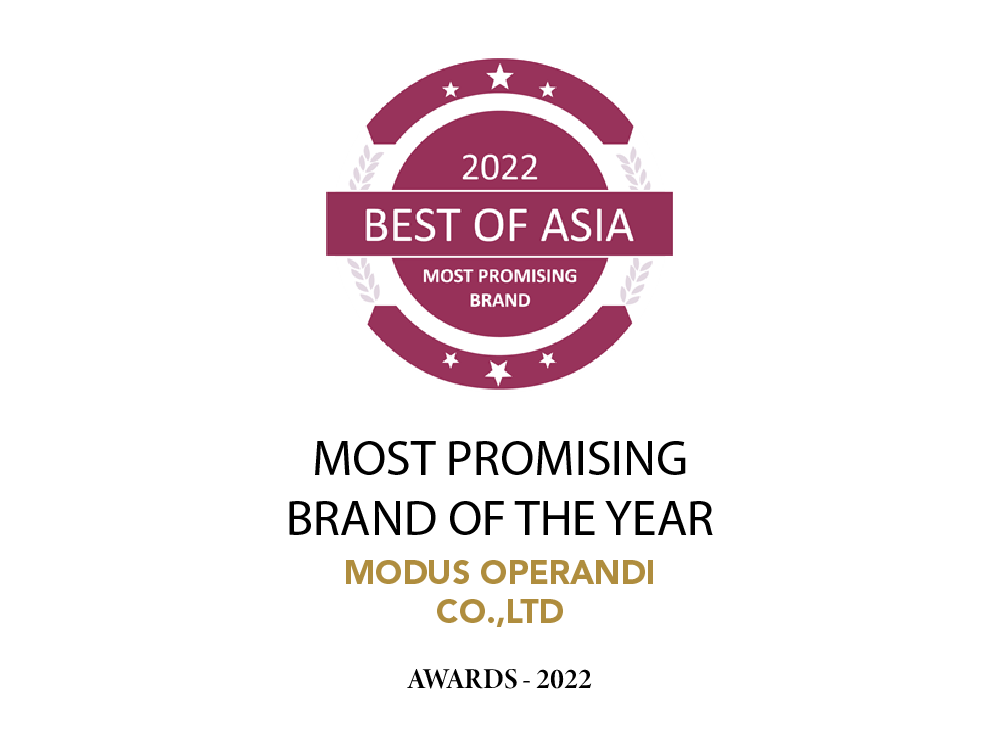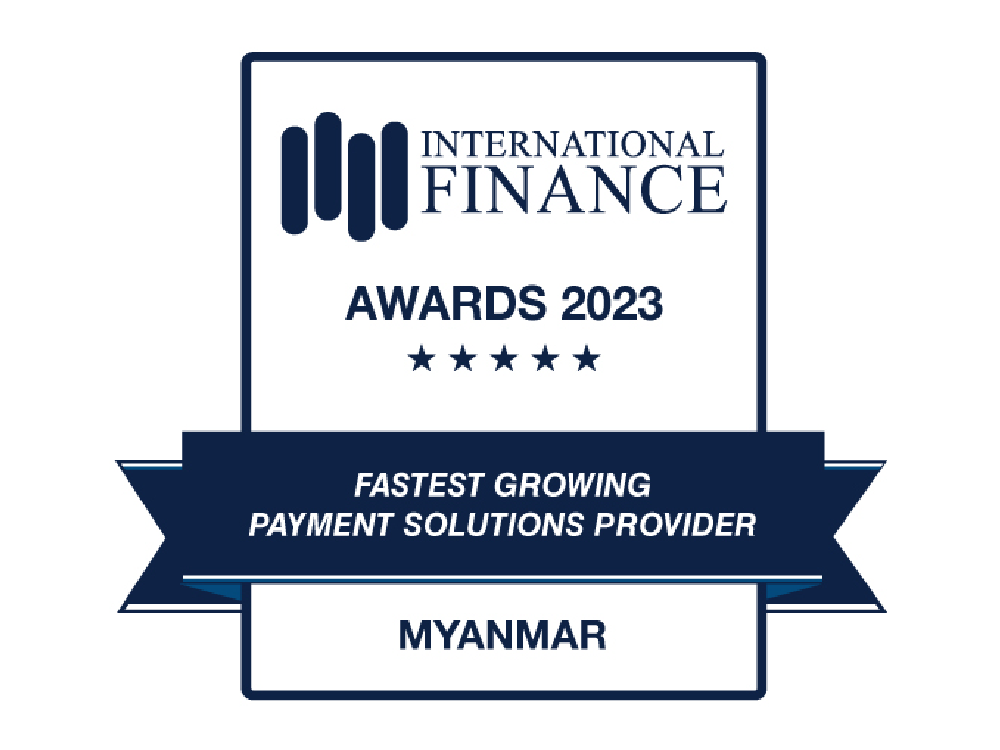အမျိုးသမီးတိုင်းအတွက် အကောင်းဆုံးငွေရေးကြေးရေးအကြံပြုချက်များ

All the stereotypes about women are that they are bad with or feel timid about money. Besides the stereotyping, in reality, women face many challenges in their financial life, like making less money than men, or no-paid jobs during motherhood, easier to become victims of financial scams. We approach the topic below away from the stereotypes and challenges which can prevent you from improving your financial situation. And you can overcome them by following some simple tips we are about to share. It has been proven statistically that most women will outlive men by 5 years. Meaning whether you are currently leading a single, or married life, you will hit the moment in life where you have to take care of your own finances. You probably have to work when you are 60, or 70 years old if you don’t start planning it now. Be in control of your money. The starting point for everything else is here. Thus, it is crucial to first overcome the mindset. Even if you are a stay-at-home parent and you have no income to manage or control, rethink. We have made it clear that you will have more years to live alone, especially if you are a single woman. Planning now to manage your money can help you in the long run. Even if you are currently not the primary provider for the family, you can still handle other areas of money, such as managing family finances, knowing when to save and spend money wisely, discussing financial objectives with your loved ones, and teaching your children about money. It’s not always necessary to “earn money” in order to feel in charge. For all the single women out there, it is not just the 10 years of financial independence, you have to “feel in control” all the time. You have to face moments where you need to make big financial decisions in life. Don’t stress about the “what-ifs” scenario; a decision must be made in order to proceed. Over time, keep learning and developing money skills for yourself. But start by knowing your current financial circumstances (how much money you make, set the end goals, and know how much you want to achieve at which age). Save a cup of coffee per day The “coffee cup effect” is the term used by David Bach, author of the book “The Latte Factor,” to describe this phenomenon. If the average cost of a cup of coffee is merely $1, you can invest or save this much every day, and your money will grow exponentially over time. However, we do not mean you put $1 in a piggy bank at home because your piggy bank does not know the concept of compound interest. Simply put, your money will grow exponentially if your interests are reinvested over time. You do not withdraw the interest, you will see the money rise enormously after 5 years or more. Like Albert Einstein once said, “Compound interest is the 8th wonder of the world.” Those who understand it will make money and those who don’t will have to pay for it. We will share an example of how compound interest work. If you regularly deposit US$1/day, you will accumulate US$30/month. With an interest rate of 5%/year and after 40 years, your money will grow to US$46,000. Basically, your money has already grown more than 3 times thanks to compound interest. So, if you are 25 now, by 65 you will have that amount. If US$46,000 is nothing to you, save your second and third cup of coffee, and you can grow your money to the next level. Be wise with credits and debts Be prudent with your spending using credit cards. If you are not careful about this, you will slide into the “paycheck to paycheck” lifestyle. You will get into trouble if you take out a loan to pay for “Wants” but not for “Needs”. The issue with spending on the “Wants” is you will continue to borrow and shop because you never feel it is enough”. So, the first thing you need to do is refrain from borrowing money to acquire items you don’t actually need, like gym memberships, shopping for clothes and cosmetics, and the newest electronics like smartphones and TVs. Where is your emergency fund? A reserve fund, also called an emergency fund, is seen as savings reserved only for difficult times. Hence, the available funds would be appreciated as a contingency for situations like job loss, medical expenses not covered by insurance, home or car repairs, etc. By saving up at least three months’ worth of your monthly expenses right away and putting them aside, you will have some peace of mind. You may expect the best but also plan for the worst. For instance, if your monthly expense is 300,000 MMK, you can set aside at least 900,000 MMK And if you want to be more secure, save up 1.8 million MMK. If you ever deplete this money, you should replenish it right away by reducing your spending in the upcoming months. Take care of your health The best investment any woman could invest in is insurance. In fact, we talked about step 5 “Protection” in the Money Wheel in this article (https://mo.com.mm/articles/overall-financial-planning/). This could be a great cushion for your life. Women will also face many female-related illnesses such as gynecological health disorders, pregnancy-related issues… We advise you to think about health insurance if you fall into one of the following categories: You are the main supporter of the family’s finances. You are young and there is a long runway ahead (therefore insurance is still cheap now) You run a small business or work as a freelancer You pursue the FIRE life (Financial independence and early retirement). Make an informed decision by speaking with at least three insurance providers; do not settle simply because the agent is a friend or relative. You need the appropriate health coverage, and having a long-term commitment to the policy
Tips to set up and manage your financial accounts

This article is to provide some practical information on how one person should set up and manage their personal accounts. Having the right setup will give you the discipline and longevity you need for a better financial system to accommodate the 5-step “Money Wheel” and your financial goals. We previously spoke about the 5-step “Money Wheel” for overall personal finance planning. Now it comes to what actions you need to take to start in real life. Should you open an account with a bank or a Fin-tech? Where do you save for your emergency funds? You can’t have the discipline in reducing your overspending if you do not separate the accounts. It means you will always tap into the wrong accounts for your spending habits, which will lead to withdrawing from the accounts which you save and invest in for your future goals. A lot of us actually complain that we live paycheck by paycheck, some of us can save, and some don’t. If you have this mindset, you will be falling into the trap of never saving enough for your future life or your retirement. We are going to share with you some basic steps in setting up your accounts. This way, you can guarantee that your future will forever thank you. We recommend you start with having 3 separate accounts. The first account (Account 1) could be for your salary, or income if you have multiple sources. You will need to set up the automated debit of at least 20% from this account and transfer it to Account 2. Note that we recommend automatic debit because you might forget to transfer, or lose the discipline for the saving requirements. The debit automation will act as the “blind” action because if you do not see the money, your bad habit will not tap into it for unnecessary spending. Once the 20% goes to Account 2, this account will serve as your Emergency fund. Imagine if you do not have this fund, and you unexpectedly lose your job, you won’t be able to overcome the financial circumstances. We recommend 3-6 months of your salaries for these Emergency funds. If you happen to have debt, use this account to pay for your debts. Please note that this account has to always be in the “Full” mode. Meaning if you happen to tap into this account, you need to refill it before you can save and worry for Account 3. Account 3 will be used for investment growth, and it should fit with your investment strategies which we will share more about our step 4 of the “Money Wheel” – Investment. This account can be used to buy investment funds, investment-linked insurance, term deposits, buy securities, or even save toward your first property. Where can you consider setting up these accounts? Banks Fintech E-wallet We recommend starting with 3 accounts but you can have more or less depending on your financial needs. The recommendation is based on the consideration of time management and the efforts you have to put in to control your money inflows and outflows. By setting yourself up in multiple accounts might lead to complications if you forget later, or do not have time to manage all of them. Dealing with cash is no longer the way to grow your assets in this time of age. And remember you can never reach your financial goals by keeping the cash. The finncial goal is a long-term goal and assets can grow over time even when you sleep. For example, you are making 1,000,000MMK/month. By putting aside just 20% per month (200,000/month) in the saving account to invest, with an estimated of 10% annual return*, you will grow your money to: more than 3X (of your original amount) to reach 15,300,000 MMK in 20 years more than 6X to reach 45,500,000 MMK in 30 years more than 13X to reach 127,500,000 MMK in 40 years The growth rate is significant the longer the tenor, says after 5 years of saving and investing, thanks to the compound interest. We will talk about compound interest and why it is “The 8th Wonder of the World” according to Albert Einstein in later articles. *calculation is based on compound interest and 10% annual return is only for reference. You need to speak with a professional advisor to find the appropriate rates in the current market.
ဘဝအခြေအနေနှင့် ကာလအလိုက် ငွေကြေးဆိုင်ရာမှတ်တိုင်များ

Understanding money management through different ages, life events, or financial circumstances will help us manage uncertainties, and life-changing events or set the right priorities while not compromising our end goals. Our financial priorities will change when we embark on our life journey, and understanding what could have changed or impacted our financial life will help us maneuver through the potential uncertainties. There are different angles we can look at as we go through our financial life: We can plan for financial priorities by age milestones, for example, when we are in our 20s, 30s, or 40s. We can plan for the financial changes from being a student to our first job; single to married life, then having kids; health situations as we age, or based on family medical history. We can plan for different lifestyles we each want to pursue: like minimalist, YOLO, FIRE, or leading single independent life. No matter how we go through life, and what priorities we want to set for ourselves, we can’t avoid the fact that we have to face money issues and make big financial decisions for the rest of our lives. And all of us would eventually set end goals for retirement (at a young age or later in life). If we all want to secure a quality and meaningful and healthy life, we have to start planning now and should not stop. We can all control our financial situations by knowing everything about it, teaching ourselves by managing them, and overcoming difficult situations by making wise decisions on finances. MO Foundation embarks on our journey to providing the Financial Literacy program to our community. When we refer to literacy, we do not mean just knowledge. It is everything from information, knowledge, skill sets, actions, habits, and mindsets about money. It is our goal to cover all aspects of financial literacy; and over time, we will provide the foundation to help people in having full control over their businesses and finances. So, what can you do as you go through your financial journey? Ages 20s: if you are at this age, you have the full advantage of being young, because time gives you a longer runway to prepare and plan to grow your money over time. You just need to start putting a smaller amount aside and learn to use money as a tool to help grow your money and assets exponentially. You could be a FIRE when at 35 if you save/invest and plan your financial journey accordingly. 30s: You are at the stage with better career advancement. How are you coping with your career and love life? With more money compared to your 20s, you start thinking about setting up backup financial streams. Do you not like your job much and think of being your own boss? Or you have to focus on your love life and build a family, but money talks with the partners can be complicated and stressful. 40s: You are more concerned about your health and worried about what is to come for your old parents. But you have missed all the saving/investing when you were young, and all of a sudden you now have a shorter time runway. Can you achieve certain financial goals to ensure you can retire at 55 (or 15 years later)? Life circumstances Single: Your financial life is pretty much different when you are alone, and maybe you only have to worry about your parents. How to set up a foundation when you receive the first paycheck, negotiating for the best salary from the start? You might be looking for love and dating now, but worrying about the money discussion. How can you set the right foundation from the beginning to create transparency and responsibility? To be Married or Marriage: You need to save for wedding funds. You have worries about your money, and your partner’s money, should you set up separate or joint accounts? What kind of conversation should you have with your spouse? Love and Money are two topics that should not be mixed as we might be taught it is just the way it is. Is it true? What if your partner has debt management issues? At this stage, you might also plan to buy the first property together. Having kids: What kind of money do you have to prepare? What about education funds for your kids? How do you teach your children about money? Health: Do you have health insurance? Insurance is a complicated product and you do not know what to choose for yourself and your family. What happens if you do not have insurance, and what kind of impact does it have on your financial life? Big family: You have to care for your old parents too. Money is tight and how do you plan for everyone when they are dependent on you? Lifestyles Minimalists: What is this lifestyle and how do you know if it suits you? YOLO: You want to experience everything at a young age, and you do not believe in saving for later. What kind of impact will it have on your finances? Build the disciplines now so you can still enjoy yourself to the max while being responsible for your financial life to ensure your YOLO life can still carry on. FIRE: You plan to retire early at 40 years old, what do you have to do now to achieve that? Why is it so difficult to achieve, when many have already become FIRE at a much younger age than you?
မိမိကိုယ်ရေးကိုယ်တာနဲ့ လုပ်ငန်းအတွက် ငွေကြေးစီမံခန့်ခွဲရတာ ရှုပ်ထွေးပါတယ်။

Why do you need to separate personal and business finances and How? You have plans to become your own boss and set up a small business. Being a sole-proprietor can be a rewarding journey, however it does not come naturally and easy. It can create different kinds of stress and pressures because it now involves your own money invested into this business venture. Your business lives or dies based on the daily revenue. What’s more stressful for a small business owner is when you do not come from having a financial background. Or even if you are good at numbers, you still scramble not knowing where to begin. Like it or not, as a business leader, there are many angles of the business you have to worry about besides the financials. Being your own boss now you need to know how to manage people, run the operations, sales, marketing, build or leverage from digitalization/technology for scaling up the business. We understand the frustrations, so we want to tackle the first important angle, the finances, as you plan for your business. You need to know how and where to begin and why it is important to manage it separately from your personal finances. We have before talked about the 5-steps “Money Wheel” for personal finances (https://mo.com.mm/articles/overall-financial-planning/). Let us follow the Money Wheel steps and apply them to managing business finances: Steps Areas to consider INCOME Now you have to consider the revenues and profits for the business. Should you pay yourself a salary to support your personal income? SAVE Business needs to save for emergency, and enough cash to operate at least 6 months during uncertain times SPEND Business expenditures and inventory procurement. Overhead costs and payrolls. How to be effective in managing the business’ expenses? INVEST Should the business invest to expand? Profits gained from the business to save, pay back investors if any, or how to grow even further for the business? Would you call for more funds for your business? PROTECT Look for ways for the business to be stable and sustainable, setting up reserves or emergency funds for unforeseen economic crises. What kind of risks to the business? Competition that threatens your business? How do you make sure there is no loss (revenue attrition) from the business? Although we mentioned the same 5 steps of “Money Wheel” for both personal and business finances, there could be some overlapping or differences because you are the owner of the business. Before your business begins, you can go through each step and ask yourself where the money is coming from, how you will manage it, etc. Let’s look at the differences between personal and business finances, and what kind of impact it makes if you don’t separate between your own money and the business’ monies. Your personal goal in life is retirement and financially secured for you and your family. For your business, you want to have a sustainable model to ensure that the business makes profits in many years to come. Only then, this business can continue to provide financial security for you and your family and now your employees. Business financial planning is more complex, for example, it now involves payroll and inventory which aren’t necessary for personal finances If we just talk about the Step 1 – INCOME, the difference between income for yourself and for the business (=revenue). When we start to gain profits for the business, you might have to decide whether you will move all that into our own income, or you pay dividends to all shareholders (if they invest with you), or reinvest back into the business for expansion. Questions like should you get a salary from your business? Most business owners think that this is your own business, therefore you should work for free. How are you going to take care of your personal income and future if you do not draw a salary? Financial statements and reports (Individual budgeting versus Business’s Profit & Loss, Cash Flow, Initial Investment Capital). As the financial framework for business is complex, you might have to involve an accountant for this process. We recommend any business owner needs to know at least the foundation of the above three financial statements as you manage the accountant. Know your business by knowing the important financial details. Should you have all in your account, or separate accounts? Your business can not enjoy certain financial benefits if you put everything under the personal accounts i.e. getting loans from banks, credit lines, exclusive business tools or account features, access to a more streamlined accounting. Misuse of the funds (which is for personal, which is for business?) If your business leverages, then it becomes personal liabilities. You might lose your house or other assets if your business can’t serve the loan. You are not able to call for investors if you later need cash to expand because the investors might not want any complications between personal and business money. Reputation and credibility from business name versus personal name when you need to establish relationships with partners, suppliers and others. Taxes (now deal with personal income taxes and business taxes or both now that you have taxes for yourself and employees versus taxes for the business) Our advice is to keep separate accounts and everything else should follow on from there. Even if you do not register the license for your business, the two accounts, even if under your personal name, should still be serving separate purposes and should not be mixed. The business accounts will be used for client’s payments, payroll and other expenditures, pay yourself a salary to keep the book clean right from the start.
တစ်ဦးတစ်ယောက်ချင်းစီတိုင်းအတွက် ငွေကြေးစီမံခန့်ခွဲမှု အဆင့် (၅) ဆင့်

Overall financial planning for every individual provides the basics of money management: Income, Save, Spend, Invest, and Protect. The value of knowing all the basic steps of money management is to help all of us lay a stronger foundation from the start, and understand that these steps are actually intertwined and eventually will impact our money habits. Some hard-to-break habits could eventually lead to lifelong money struggles later in life. These steps are not required to follow in order, but anyone who understands all of them will have a better foundation than those who don’t. In fact, these steps are widely known in many countries, even the U.S. Financial Literacy and Education Commission (FLEC) calls it “My Money Five”. It is part of the FLEC’s mission to provide sustained financial well-being for all individuals and families in the U.S. https://www.mymoney.gov/mymoneyfive Our approach is simply different in the steps shown above, as we believe there is an easy and simple way to make sense of it, and we call it the “Money Wheel”. As we all go through different stages of our financial life, we have to face moments that transcend each step of the “Money Wheel”. Just to summarize as follows: Step 1 – INCOME: We need to make money to begin our financial planning journey. Step 2 – SAVE: Once we have money inflows, we should aim to save first. Step 3 – SPEND: We can then spend what’s left after we save Step 4 – INVEST: We should invest the money we have saved to grow. Step 5 – PROTECT: Protect ourselves, our family, assets, and finances by managing risks and having insurance. It is easy to understand once we go through each step. However, you can jump steps depending on different financial circumstances. But please note that understanding all the steps will help us reduce the possible financial impacts in life. For example, if you only focus on investment, it is our advice to understand other aspects that could eventually impact your investment. Have you got your emergency funds? Have you settled your debts? Should you have your health protected? What if you had to liquidate your investment at a loss in order to cover the medical bills when you or your family members get sick without health insurance? Let’s go through our guide for the “Money Wheel”, but we will delve into each step in our upcoming articles and video podcasts: ⦁ INCOME – Make the most of what you earn by finding more ways to increase existing and new money inflows. This would apply to both individuals and businesses. The concept of using money as a tool, and having it make more money when you sleep. What about our skill sets? How can we make use of our skills to create more income for ourselves? ⦁ SAVE – We usually do not know what to save for, and only for short-term objectives like saving to buy a phone, a car, or a short vacation. Do you know how to set all goals to ensure the security of your financial future? In this category, we also will share how you should arrange your accounts to ensure you build the discipline and good habits for your big financial goals and retirement. ⦁ SPEND – Be sure you are covered in all aspects of your daily spending, including: overspending issues that lead to debts, credit cards, debt management, bad debt – good debt, monthly budgeting, which tools are helping you stay in control of your spending. ⦁ INVEST – Basic 101 Investment knowledge to set the foundation for you to enter the investment world. Whether it is to invest in yourself, invest in others businesses, or pure investment to create passive income and build assets for yourself and families. Should you borrow to invest? When can you save for your first property? Or should you stay in a rental or buy a property? What are the current investment channels available to you? ⦁ PROTECT – It is about taking precautions about your financial situation, accumulate emergency savings, and have the right insurance. Furthermore, we also talk about risk management as many might fall into financial scams during this age of technology. Other protection would also ensure you never outlive your funds even after you have reached your financial goals. No one knows if we can live up to 85 or 100 years old. The only way to know is to understand what are the ways to protect our money to ensure that the funds will not be depleted before we pass. Money management could be complicated because this was not a topic being taught in school or at home, at least during the old times when we were growing up. And it becomes more complicated because managing finances for ourselves, family and business could have some overlaps but also differences. We all go through many different life events like from being single to married to having kids. These will impose the changes we have in our financial life. MO Foundation hopes this will empower you and your small businesses in handling money wisely, which will eventually lead to more confident and informed financial decisions.







